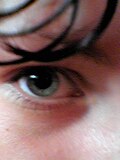
Fay Short
Short, F. (2009). Body in the Brain. Presentation at the Association for the Teaching of Psychology Annual Conference, Exeter.
How does your brain evaluate and judge your body? Can we encourage your brain to accept your body as aesthetically pleasing and discourage your brain from rejecting your body as ugly?
Body image is a significant issue in the lives of many young people: recent surveys reveal that 90% of British teenage girls are unhappy with their body. Psychological disorders such as anorexia nervosa, bulimia nervosa, and body dysmorphia are all characterised by distorted internal representations of the body. Negative body image has also been closely associated with social anxiety, depression, self-harm, and even suicide in young adults of both sexes. It is clear that our understanding and appreciation of our body has an enormous impact on both physical health and psychological wellbeing.Body representation research is a new and exciting branch of cognitive psychology focusing on how the brain understands the physical body. My talk will explore this fascinating topic by introducing some of the cutting-edge research currently in progress to further understand how our brain can represent, or misrepresent, our body. I will present evidence to demonstrate how your brain can be tricked into believing that an external object is part of your physical body, including the
rubber hand illusion in which the participant will mistake a rubber hand for their real hand. I will also present interesting case studies to highlight errors in body representation, including the extraordinary case of the patient who rejected her own arm to the extent that she insisted it was not part of her body! My talk will also explore the problems associated with negative body image and explain how virtual reality techniques can encourage body acceptance in patients suffering from body dysmorphic disorder.My talk will be followed by a workshop exploring some of the issues of body image in more detail. You will have an opportunity to experience body misrepresentation in action with the Pinocchio Effect and the Rubber Hand Illusion. You will also have an opportunity to see inside the virtual world and experience the movement of virtual limbs within the simulation (subject to technical approval).
History
©
Fay Short, Colin Short 2009 All Rights Reserved
All content in this website is the sole expression of Fay Short and
should not be taken to indicate the thoughts, opinions, or attitudes
of any related person or organisation,
including her family, friends, colleagues, or employers